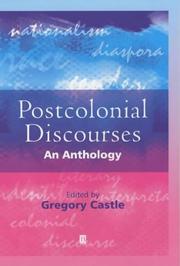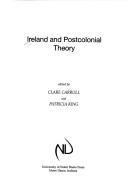| Listing 1 - 10 of 520 | << page >> |
Sort by
|
Book
Year: 2020 Publisher: Bielefeld Kipu-Verlag
Abstract | Keywords | Export | Availability | Bookmark
 Loading...
Loading...Choose an application
- Reference Manager
- EndNote
- RefWorks (Direct export to RefWorks)
Global-historical approaches plead for the overcoming of national-historical traditions. This is accompanied by the demand to consciously reflect on the long-suppressed category of space in historical research. While there are signs of a rethinking in this context in the academic landscape, a national narrative continues to dominate in history lessons, both at the curricular level, but also in the planning of teaching units and materials for the classroom. With a view to the teaching of history in Germany, the call for a de-centering of historical learning provides suggestions as to how globally networked thinking can be promoted in the classroom. The starting point of these considerations is the teaching material series 'Wissen um globale Verflechtungen' ('Knowledge of Global Interconnections').
Periodical
Abstract | Keywords | Export | Availability | Bookmark
 Loading...
Loading...Choose an application
- Reference Manager
- EndNote
- RefWorks (Direct export to RefWorks)
Postcolonialism --- Postcolonialism. --- Post-colonialism --- Postcolonial theory --- Political science --- Decolonization
Book
ISBN: 9783038421962 Year: 2016 Publisher: Switzerland : MDPI - Multidisciplinary Digital Publishing Institute,
Abstract | Keywords | Export | Availability | Bookmark
 Loading...
Loading...Choose an application
- Reference Manager
- EndNote
- RefWorks (Direct export to RefWorks)
This Special Issue aims to explore the complex and contested relationship between Trauma Studies and postcolonial theory, focusing on the possibilities for creating a decolonized trauma theory that takes account of the suffering of minority groups and non-Western cultures, broadly defined as cultures beyond Western Europe and North America. The issue builds on the insights of, inter alia, Stef Craps’s book, Postcolonial Witnessing, and responds to his challenge to interrogate and move beyond a Eurocentric trauma paradigm.
Post-colonialism. --- Post-colonialism --- Postcolonial theory --- Political science --- Decolonization
Book
ISBN: 1474471811 0585442142 9780585442143 9781474471817 0748608567 9780748608560 0748608567 9780748608560 Year: 2000 Publisher: Edinburgh Edinburgh University Press
Abstract | Keywords | Export | Availability | Bookmark
 Loading...
Loading...Choose an application
- Reference Manager
- EndNote
- RefWorks (Direct export to RefWorks)
This deeply engaging, historically and culturally informed book provides new perspectives on a wide range of writers, and at the same time provides a radically new development of many of the most pertinent issues in the field of postcolonial writing and theory. It constitutes a major new engagement between the 'postcolonial' and a conception of the literary which is richly innovative in its deployment of psychoanalytic, deconstructive and other approaches to the text.The book begins with some brief background to the issue of decolonisation and its contemporary effects. It is informed throughout by a clear sense of literary and political context, within which chosen texts - by well-known writers (Derek Walcott, Chinua Achebe, Edward Kamau Brathwaite) as well as less well-known ones (Joan Riley, Susan Power, Abdulrazak Gurnah) and writers not often seen in a postcolonial context (James Kelman, Seamus Deane, Hanif Kureishi) - can be situated. The chapters which follow are based around themes such as violent geographics; hallucination, dream and the exotic; mourning and melancholy; diaspora and exile; delocalisation and the alibi. This profoundly new approach to the complexities of the postcolonial allows the reader to appreciate some of the richness, but at the same time the political and cultural ambivalence, which underlies postcolonial writing.Throughout the book David Punter continually questions, as one would expect from his many previous books, the definition and scope of the 'postcolonial'. It is seen throughout as a phenomenon not restricted to the ex- or neo-colonies but as a key characterisation of all our lives at the beginning of the twenty-first century. It is an indissoluble part of the development of national imaginings and, at the same time, an alibi for the emergence of a violently assertive 'new world order' committed to the management or obliteration of difference. By juxtaposing texts from different cultural traditions and topographies, from Things Fall Apart to The Bone People, from Another Life to Feeding the Ghosts, from A House for Mr Biswas to The Black Album, David Punter points to the explosion of energy which characterises postcolonial writing while also raising crucially new questions about the relation between this literary energy, the professionalisation of Western literary criticism, the meaning of the notion of 'theory' and the wider global political and economic climate.Key FeaturesA new and polemical engagement with the principal theorists, writers and critics of the postcolonialA breadth of thematic approach through a radically new canon of linked studiesAn approach to the postcolonial which includes the effects on colonising societies as well as on the 'ex-colonies'An emphasis on the complexities of the 'postcolonial psyche' which brings together political and psychoanalytical approachesAn insistence on the 'phantomatic' and spectral aspects of postcolonial writing which constitutes a new critique of conventional notions of hybridity and the subaltern
Postcolonialism. --- Post-colonialism --- Postcolonial theory --- Political science --- Decolonization
Book
ISBN: 1443899232 9781443899239 1443896918 9781443896917 Year: 2016 Publisher: Newcastle-upon-Tyne, England : Cambridge Scholars Publishing,
Abstract | Keywords | Export | Availability | Bookmark
 Loading...
Loading...Choose an application
- Reference Manager
- EndNote
- RefWorks (Direct export to RefWorks)
The Postcolonial Condition of Names and Naming Practices in Southern Africa represents a milestone in southern African onomastic studies. The contributors here are all members of, and speakers of, the cultures and languages they write about, and, together, they speak with an authentic African voice on naming issues in the southern part of the African continent. The volume's overarching thesis is that names are important yet often underestimated socio-politico-cultural sites on which some of the most significant events and processes in the post-colony can be read. The onomastic topics covered in the book range from the names of traditional healers and male aphrodisiacs to urban landscapes and street naming, from the interface between Chinese and African naming practices to the names of bands of musicians and mini-bus taxis. There is a strong section on literary onomastics which explores how names have been variously deployed by southern African fiction writers for certain semantic, aesthetic and ideological effects. The cultures and languages covered in this volume are equally wide-ranging, and, while some authors focus on single languages and cultures (for example Thembu, Xhosa, Shona), others look at inter-cultural influences such as the influence of the Portuguese and Chinese languages on Shona naming.Written by Professor Adrian KoopmanEmeritus Professor, University of KwaZulu-Natal.
Postcolonialism. --- Post-colonialism --- Postcolonial theory --- Political science --- Decolonization
Book
ISBN: 9004337687 9004337679 Year: 2017 Publisher: Leiden, The Netherlands ; Boston, [Massachusetts] : Brill Rodopi,
Abstract | Keywords | Export | Availability | Bookmark
 Loading...
Loading...Choose an application
- Reference Manager
- EndNote
- RefWorks (Direct export to RefWorks)
Metaphors are ubiquitously used in the humanities to bring the tangibility of the concrete world to the elaboration of abstract thought. Drawing on this cognitive function of metaphors, this collection of essays focuses on the evocative figures of the ‘gateway’ and the ‘wall’ to reflect on the state of postcolonial studies. Some chapters – on such topics as maze-making in Canada and the Berlin Wall in the writings of New Zealand authors – foreground the modes of articulation between literal borders and emotional (dis)connections, while others examine how artefacts ranging from personal letters to clothes may be conceptualized as metaphorical ‘gateways’ and ‘walls’ that lead or, conversely, regulate access, to specific forms of cultural expression and knowledge. Following this line of metaphorical thought, postcolonial studies itself may be said to function as either barrier or pathway to further modes of enquiry. This much is suggested by two complementary sets of contributions: on the one hand, those that contend that the canonical centre-periphery paradigm and the related ‘writing back’ model have prevented scholars from recognizing the depth and magnitude of cross-cultural influences between civilizations; on the other, those that argue that the scope of traditional postcolonial models may be fruitfully widened to include territories such as post-imperial Turkey, a geographical and cultural gateway between East and West that features in several of the essays included in this collection. Ultimately, all of the contributions testify to the fact that postcolonial studies is a field whose borders must be constantly redrawn, and whose paradigms need to be continually reshaped and rebuilt to remain relevant in the contemporary world – in other words, the collection’s varied approaches suggest that the discipline itself is permanently ‘under construction’. Readers are, therefore, invited to perform a critical inspection of the postcolonial construction site. CONTRIBUTORS Vera Alexander - Elisabeth Bekers - Devon Campbell–Hall - Simran Chadha - Carmen Concilio - Margaret Daymond - Marta Dvořák - Claudia Duppé - Elena Furlanetto - Gareth Griffiths - John C. Hawley - Sissy Helff - Marie Herbillon - Deepika Marya - Bronwyn Mills - Padmini Mongia - Golnar Nabizadeh - Gerhard Stilz
Postcolonialism. --- Post-colonialism --- Postcolonial theory --- Political science --- Decolonization
Book
Year: 2020 Publisher: Bielefeld Kipu-Verlag
Abstract | Keywords | Export | Availability | Bookmark
 Loading...
Loading...Choose an application
- Reference Manager
- EndNote
- RefWorks (Direct export to RefWorks)
Global-historical approaches plead for the overcoming of national-historical traditions. This is accompanied by the demand to consciously reflect on the long-suppressed category of space in historical research. While there are signs of a rethinking in this context in the academic landscape, a national narrative continues to dominate in history lessons, both at the curricular level, but also in the planning of teaching units and materials for the classroom. With a view to the teaching of history in Germany, the call for a de-centering of historical learning provides suggestions as to how globally networked thinking can be promoted in the classroom. The starting point of these considerations is the teaching material series 'Wissen um globale Verflechtungen' ('Knowledge of Global Interconnections').
Book
Year: 2020 Publisher: Bielefeld Kipu-Verlag
Abstract | Keywords | Export | Availability | Bookmark
 Loading...
Loading...Choose an application
- Reference Manager
- EndNote
- RefWorks (Direct export to RefWorks)
Global-historical approaches plead for the overcoming of national-historical traditions. This is accompanied by the demand to consciously reflect on the long-suppressed category of space in historical research. While there are signs of a rethinking in this context in the academic landscape, a national narrative continues to dominate in history lessons, both at the curricular level, but also in the planning of teaching units and materials for the classroom. With a view to the teaching of history in Germany, the call for a de-centering of historical learning provides suggestions as to how globally networked thinking can be promoted in the classroom. The starting point of these considerations is the teaching material series 'Wissen um globale Verflechtungen' ('Knowledge of Global Interconnections').

ISBN: 0631210040 0631210059 Year: 2001 Publisher: Oxford Blackwell
Abstract | Keywords | Export | Availability | Bookmark
 Loading...
Loading...Choose an application
- Reference Manager
- EndNote
- RefWorks (Direct export to RefWorks)
Postcolonialism. --- Postcolonialisme --- #SBIB:39A4 --- Toegepaste antropologie --- Postcolonialism --- Post-colonialism --- Postcolonial theory --- Political science --- Decolonization

ISBN: 0268022879 0268022860 Year: 2003 Publisher: Notre Dame (Ind.) : University of Notre Dame press,
Abstract | Keywords | Export | Availability | Bookmark
 Loading...
Loading...Choose an application
- Reference Manager
- EndNote
- RefWorks (Direct export to RefWorks)
Postcolonialism --- Ireland --- Historiography. --- Civilization --- Post-colonialism --- Postcolonial theory --- Political science --- Decolonization --- Irish Free State
| Listing 1 - 10 of 520 | << page >> |
Sort by
|

 Search
Search Feedback
Feedback About
About Help
Help News
News